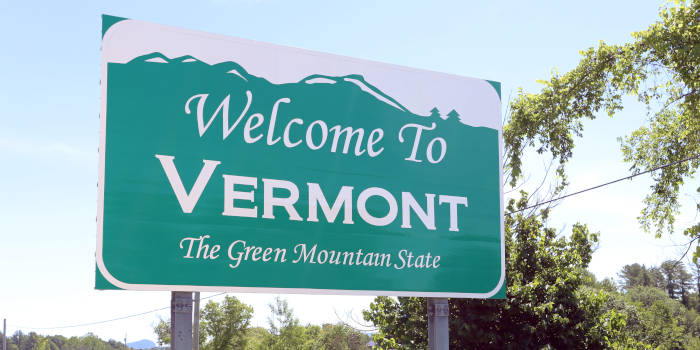Vermont is keen to see sports betting legalization enacted with the reins held tightly by the state, a group of legislators said this week. A new draft report submitted on Tuesday confirmed that the state stands to benefit immensely from strong sports betting tax windfall, albeit the results presented by the 2022 Sports Betting Study Committee failed to acknowledge the specifics of how much such revenue would be.
Vermont Outlines Details about Potential Sports Gambling Launch
However, Vermont lawmakers are confident that there are many upsides in going down the road of a regulated market with consumers provided with a safe and secure gaming environment in the first place. Another boon to legalizing sports gambling would be the fact that people will have access to responsible gambling products, which are funded with part of the revenue generated by gambling operators.
This way, the report says, vulnerable gamblers can be helped. The Vermont legislature will convene in January to decide on whether sports betting should be legalized. Proponents of the idea insist that sports gambling is happening with and without the state’s say-so, and it would make sense to create a legal framework that protects consumers and drives tax revenue.
Some lawmakers thought remained skeptical. One of those is Democratic House speaker Jill Krowinski who said that the report – which he admitted to not having seen – lacked some fundamental data as to how problem gamblers would be protected under a possible legalization of the sports gambling industry.
Another issue has to do with the fact that Vermont is a practical wasteland when it comes to gambling products. There are no casinos or racetracks, which means that the state would need to come up with a different approach to regulation. Most neighboring states are regulating gambling based on a tie-up between land-based properties and online gaming brands.
Minutiae Still Left to Thrash Out
This would not be possible in Vermont, though. However, Vermont is aware of the risks of trying to concentrate gambling monopolies in the hands of the state, having learned from other unsuccessful attempts to do so in the country. That is why the report urges state lawmakers to consider granting private operators licenses that are selected through a competitive bidding process.
The regulator for the state is pitched as the Department of Liquor and Lottery and money should be going to the Department of Mental Health to administer problem gambling services but also help drive research in key areas of understanding the issue as such.
